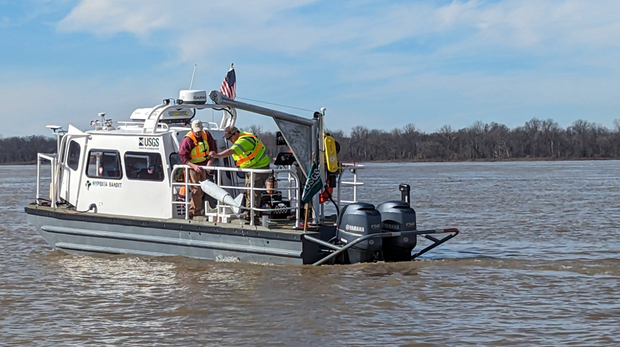CBS News
Connecticut-sized “dead zone” expected to emerge in Gulf of Mexico, potentially killing marine life, NOAA warns

Nearly 6,000 square miles – an area roughly the size of Connecticut – will become a “dead zone” for marine life in the Gulf of Mexico this summer, the National Oceanic and Atmospheric Administration (NOAA) warned on Thursday. Although such areas happen every summer, this year’s will be more than 600 square miles larger than average.
Dead zones are areas in the water where oxygen levels are so low that they can kill fish and other marine life. These zones typically emerge because of excessive nutrient pollution caused by human activities, NOAA said. The average dead zone over the past 37 years has measured at about 5,200 square miles, but this year’s is estimated to be about 5,827 square miles.
The largest dead zone ever recorded in the Gulf was nearly 9,000 square miles – roughly the size of New Jersey – and emerged in 2017. When that happened, videos showed the water becoming so dark that divers needed flashlights to look around.
The estimate comes after the U.S. Geological Survey found about 5% more discharge in the Mississippi and Atchafalaya Rivers than the long-term average in May. Nitrate and phosphorus contribute to algal blooms, and in May, those loads were 7% and 22% above the long-term averages, respectively.
USGS
Those nutrients, though necessary in some amounts, can overload the environment. According to Carleton College’s Science Education Resource Center, runoff filled with fertilizers, soil erosion, animal wastes, and sewage ends up in the aforementioned rivers.
“In a natural system, these nutrients aren’t significant factors in algae growth because they are depleted in the soil by plants. However, with anthropogenically increased nitrogen and phosphorus input, algae growth is no longer limited,” the college says. “Consequently, algal blooms develop, the food chain is altered, and dissolved oxygen in the area is depleted.”
When that happens, it forces many animals, like fish and shrimp, to leave the area, and can kill organisms that are not able to leave. When dead zones are particularly large, they can wreak havoc on fishermen and coastal economies, Carleton College researchers say, as the Gulf provided nearly three-quarters of the country’s harvested shrimp. The Gulf also provides 66% of harvested oysters and 16% of commercial fish.
USGS Lower Mississippi Gulf Water Science Center
“Reducing the impact of hypoxic events and lessening the occurrence and intensity of future dead zones continues to be a NOAA priority,” National Ocean Service Assistant Administrator Nicole LeBoeuf said. “These forecasts are designed to provide crucial data to scientists, coastal managers and communities, and are used as guideposts in the development of planning actions.”
Reducing runoff is essential in minimizing the dead zone.
The National Wildlife Federation said that adopting better agricultural practices, such as planting cover crops and reducing farm field drainage into rivers, as well as filling floodplains with wetlands to filter nutrients, can all be valuable ways to manage the issue.
CBS News
Hyundai, Kia recall more than 208,000 electric vehicles over power loss issue

Hyundai and Kia are recalling more than 208,000 electric vehicles to fix a problem that can cause the loss of drive power, increasing the risk of a crash.
The recall covers more than 145,000 Hyundai and Genesis including some IONIQ 5 and IONIQ 6 EVs along with Genesis GV60, Genesis GV70 and Genesis G80 models.
The National Highway Traffic Safety Administration (NHTSA) said the vehicles’ transistors in a charging control unit may get damaged and stop charging the 12-volt battery, “which can result in a loss of drive power.”
In the Kia recall, nearly 63,000 EV6 vehicles from 2022 through 2024 are impacted.
Car dealers will inspect and replace the control unit and a fuse if needed, as well as update software. Owners whose vehicles were recalled earlier this year to fix the same problem will have to visit their dealer again.
Owners will be notified by letter in December and January.
CBS News
Here Comes the Sun: Jack Antonoff and more

Watch CBS News
Be the first to know
Get browser notifications for breaking news, live events, and exclusive reporting.
CBS News
Capturing Moriah Wilson’s Killer – CBS News

Watch CBS News
Be the first to know
Get browser notifications for breaking news, live events, and exclusive reporting.










